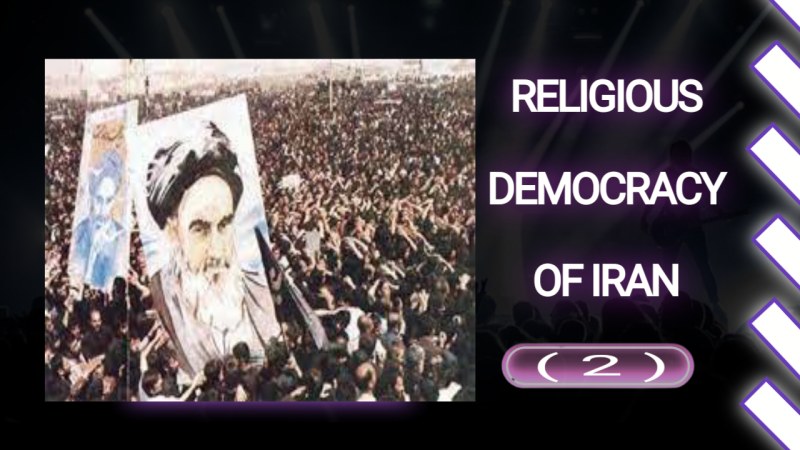- Religious democracy and its most important component, that is, valuing people's choice and consent in determining their political destiny in the form of the implementation of the Velayat al-Faqih system, has made its way into the political literature of the world.

Religious democracy of Iran
Click to Previous Part
Religious democracy:
The idea of Wilayat al-Faqih in religious, judicial, financial and political affairs has always been designed and developed in accordance with the spatial and temporal capacities by the early and late Shia jurists. It has been operationalized in limited cases such as the post of political Friday prayer, judging, executing of limits, guardianship and the management in matters of hasba and fatwa of Jihad with polytheists. After the revolution of the Islamic Republic of Iran, the theory of velayat-e-faqih in the form of a system of political governance over the geographical body of Iran replaced the autocratic royal system.
Democracy has three main components:
The government of the people, the participation of the people, and the ultimate goal of the government. In religious democracy, the source of the legitimacy of power is God Almighty. His absolute power manifests itself in political aspects and planning worldly affairs in the form of prophethood and Imamate. In fact, the origin of the legitimacy of the political power of the rulers is from God Almighty and the rulers are determined by the will of God, but the people in the form of allegiance as a way of participation in Islam in the past and the event of elections in the contemporary era, are the causes of the realization and objectification of the works of political governance. The reallization of the religious government depends on the will of the people, not the legitimacy. From the perspective of the Velayat al-Faqih theory based on appointment as the ideological basis of religious democracy, people do not legitimize or elect the Islamic leader. But they objectify the mechanism of realizing the Islamic system with their decision, participation and support. After the victory of the Islamic revolution, Imam Khomeini (may God have mercy on him) established the platform for the implementation of the system of religious governance of Islam based on the legal authority through the means of elections and the maximum participation of the people.
Click to Next Part



